Brooks Ashmanskas Plays a Broadway Director in Smash—In Real Life, He's Happy Being the Comic Relief
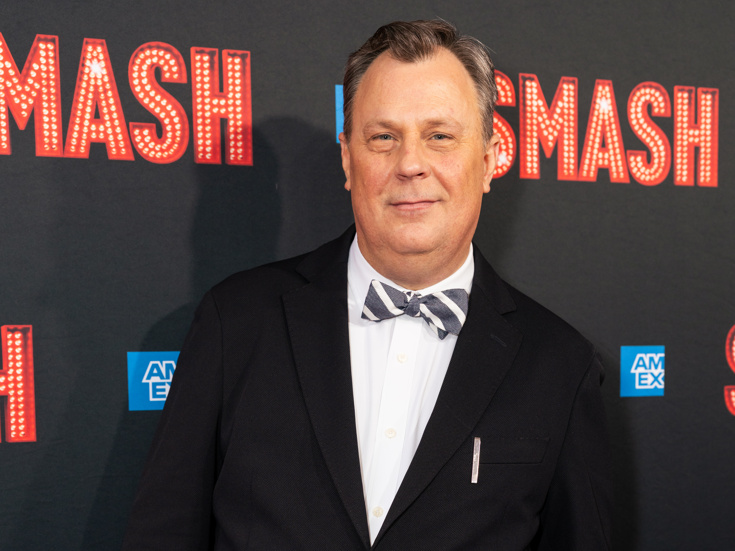
(Photo by Sergio Villarini for Broadway.com)
Ana Gasteyer calls Brooks Ashmanskas “the funniest man on Broadway,” and who are we to argue? In a 30-year career, Ashmanskas has lent his comic expertise to farces (The Ritz), sketch revues (a Tony-nominated performance in Martin Short: Fame Becomes Me) and all kinds of musicals, from The Prom (earning a second Tony nomination as vain actor Barry Glickman) to this season’s double feature of Once Upon a Mattress and Smash.
After giving Gasteyer’s Queen Aggravain a mani/pedi as the Wizard in the Broadway transfer of Mattress, Ashmanskas assumed the pivotal role of Nigel, director of a fictional musical biography of Marilyn Monroe, in Smash. This ultimate Broadway pro makes juggling scenes with 20 castmates look easy, his Mona Lisa half-smile indicating that he knows more about getting a show on its feet than all of them combined. Just before opening night, he chatted about the hijinks of Smash, including whether he would make a good director in real life.
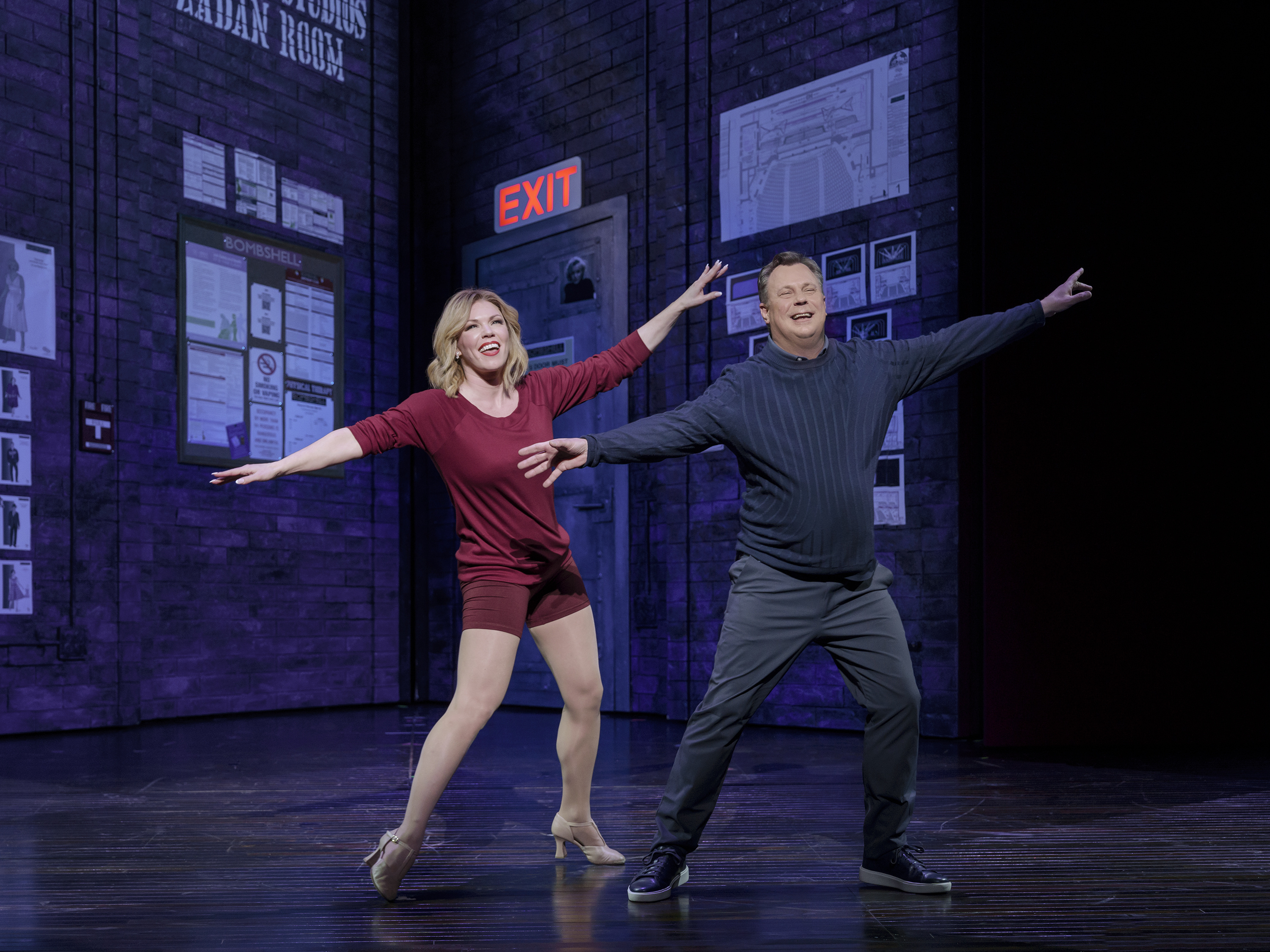
(Photo: Paul Kolnik)
This is a fast and furious show. What’s it like, on stage and backstage?
Those are two perfect words for it: fast and furious. There’s not a lot of space backstage at the Imperial with all the set pieces, so everyone is changing clothes at the exact same time in the exact same space. It’s not like many shows, where a number ends and the dancers are over there while people are doing a scene. It’s cramped and crazy—onstage, too, but also fun. Hey, it’s a comedy!
How closely do these antics—frantic rewrites, diva behavior and worse—track with what really happens in rehearsal for a new Broadway show?
Honestly, I think it tracks pretty well. As crazy as it seems, we’ve all, to some degree, been through every single thing that happens to these poor people as they’re trying to put on a show. People who aren’t knowledgeable about what goes on in the theater might think, “Why would anyone want to do this?” Having a sense of humor about it is very important.
Could a real production of Bombshell work on stage?
There was a very famous flop of a Marilyn musical on Broadway [in 1983, starring Alyson Reed, with Scott Bakula as Joe DiMaggio], and also Gentlemen Prefer Blondes, Sugar and Some Like It Hot, based on the character she played. But Marilyn is such an iconic figure, I imagine it would be as difficult [to get right] as the people trying to put on our show-within-the-show.
You are the linchpin in Smash—is it fun to share individual scenes with so many castmates?
Definitely. It takes a lot of energy, and I’m not 12 anymore, so after the show, I often I feel like “Oh god, what did I do with my neck?” But this cast is just fantastically talented and sweet, and it’s as much fun on stage as off. I’m amazed at these young people because they can do everything.
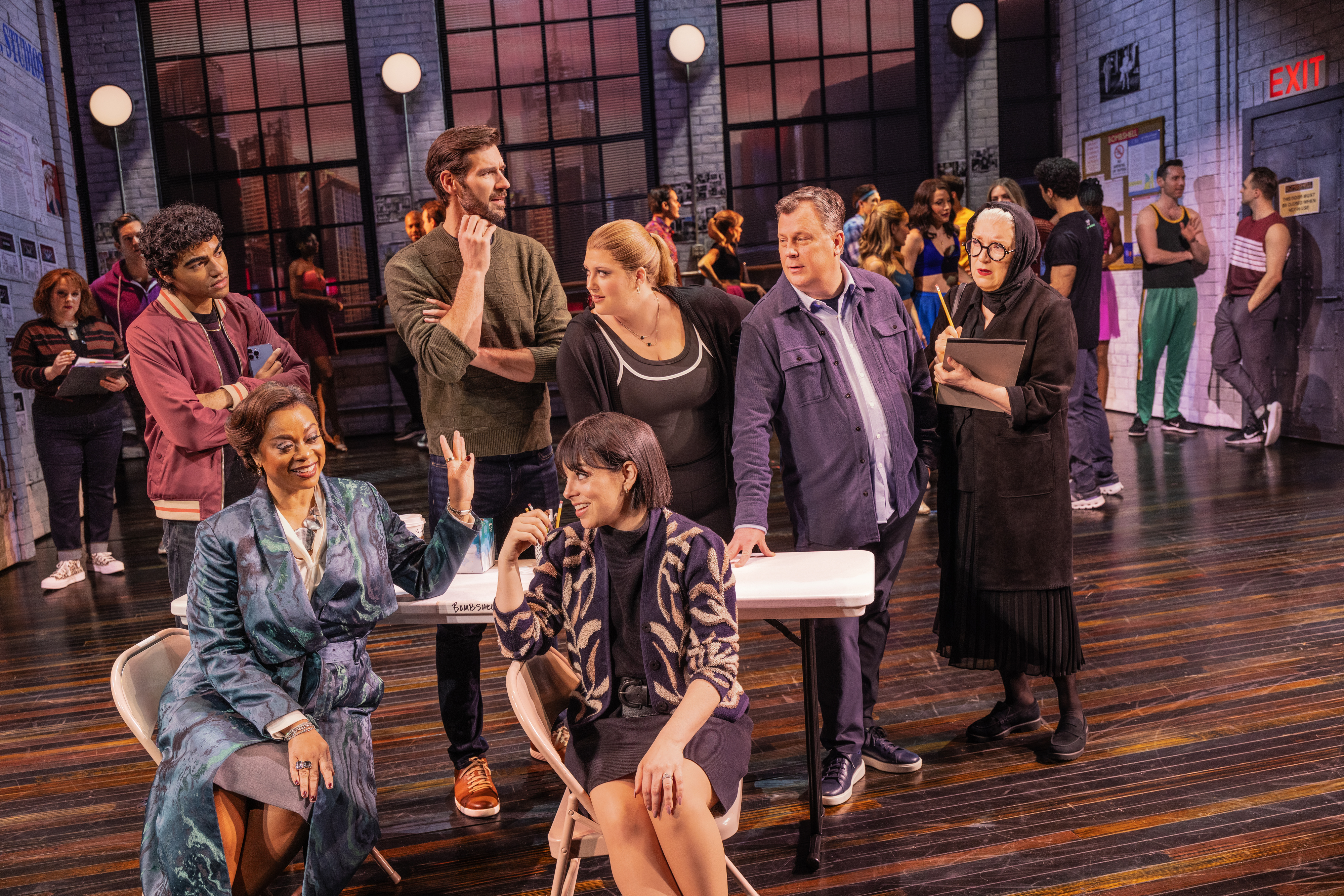
You’ve worked with a Who’s Who of Broadway directors including Casey Nicholaw, George C. Wolfe, Rob Ashford and Smash’s Susan Stroman. Did you base Nigel on any of them?
Not necessarily. I’m certainly inspired by all the directors I’ve worked with, but I’m not basing it on them.
What sets Susan Stroman’s direction apart?
Susan is so prepared, and she’s an endless-energy person. Within her preparation, which is vast, is this easygoing, free, friendly atmosphere. It’s inspiring, and also very comforting. She’s a wonderful friend and colleague, perfectly willing to throw anything out for something that works better.
Would you make a good director?
Me? No! I don’t have patience. I would just get up and leave. Directors have to be incredibly patient, and I like to have things done now. “Let’s go, let’s do it!” I don’t have the right temperament.
"We’ve all, to some degree, been through every single thing that happens to these poor people as they’re trying to put on a show."
–Brooks Ashmanskas
Were you a fan of the Smash TV show?
Absolutely. A lot of friends in the Broadway community were on it, so when I first watched, it was mostly about that. Then I got sucked into the soapiness and the drama of it. I really enjoyed it.
But you certainly don’t have to know the TV show to enjoy the musical.
No, and in fact I think it might serve people better if they don’t. Someone who is a big fan of the [TV] show is going to have expectations of what they want this show to reflect. And while many of the characters are there, they’re mostly all different, and the tone is different—it’s comedic as opposed to dramatic. With any [Broadway] show, it’s nice for the audience to go in fresh and open-minded and say, “I’m here for the ride.”
You got a Tony nomination the last time you worked with Marc Shaiman and Scott Wittman (on Martin Short: Fame Becomes Me). What do you love about their songs?
They’re wild talents. In some ways—and they’ll hate me for saying this—they’re very old-fashioned, in that they write songs like Irving Berlin wrote songs. Marc is extremely gifted at finding a musical hook, or just a “take” on a song, and the two of them together write perfect rhymes; they’re real craftsmen. On top of that, they’re two of the greatest guys I know. They make what they do seem easy and effortless, and I know it’s not.
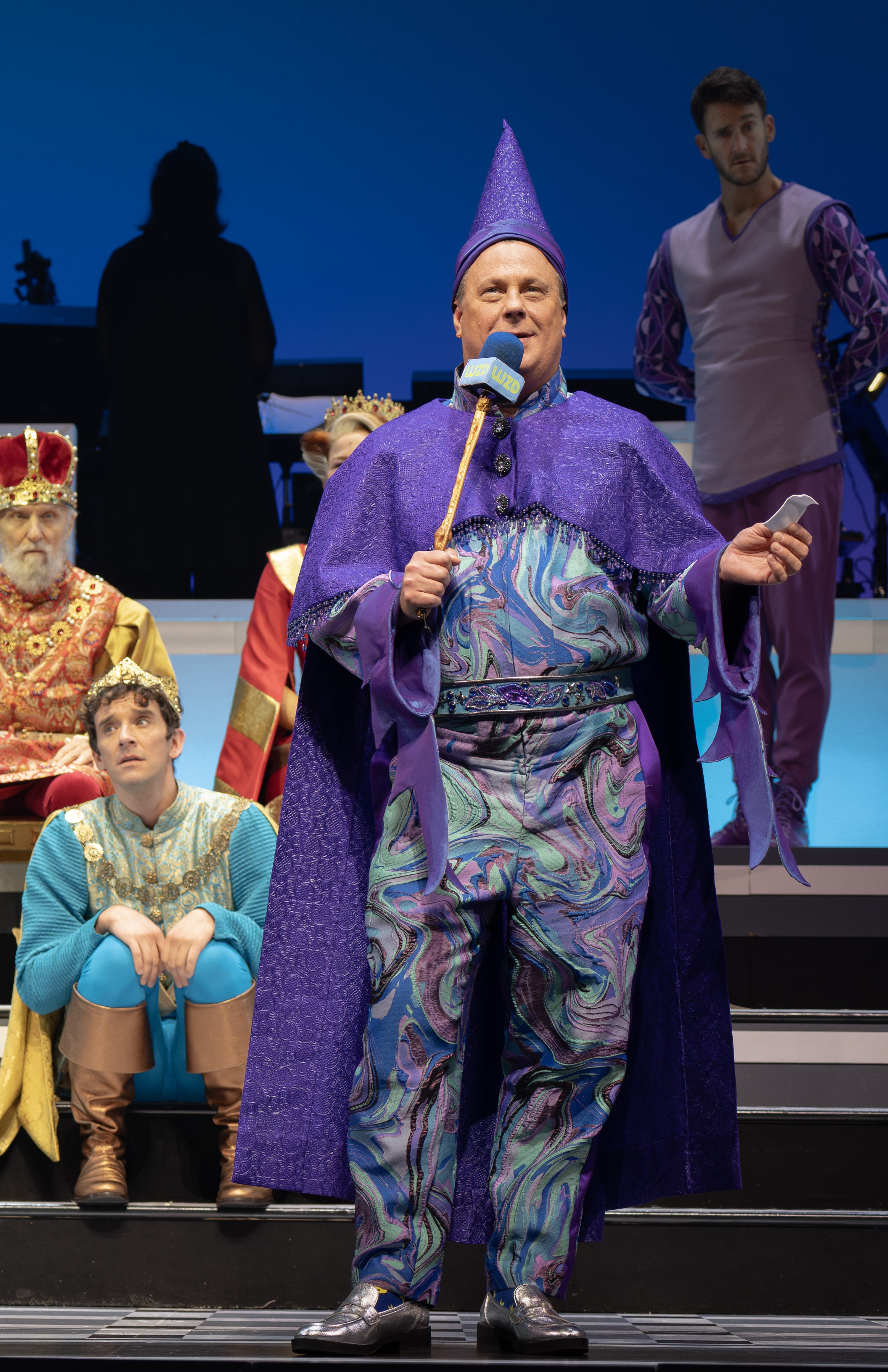
(Photo: Joan Marcus)
When I interviewed Ana Gasteyer last summer, she called you the funniest man on Broadway.
Well, she’s an idiot. [laughs]
What did you enjoy about being paired with her in Once Upon a Mattress?
Oh, I love Ana. She’s so bright and funny and quick, just a real ball to be around. She and I used to do every workshop of new musicals back in the ’90s and early aughts. We would always be paired up, sort of like we were in Mattress, doing whatever kind of silly character duet there was. This was the first time we got to do a full production together.
What’s this season been like for you? It’s rare to jump from one musical to another.
Very rare. And it’s been great—that’s the answer. I’ve certainly been on the other side of it, whether it’s feast or famine. Mattress was a wonderful group of people and a limited run that fit perfectly in my schedule, which never happens. It was a total joy and to go directly from that into Smash.
You mentioned the talented young people in this cast. Do you think it’s more difficult to make a life in the theater now than when you started out?
It’s always been difficult, but they’re differently prepared for it. A lot of them go to schools that train them to do this. I just went to school [at Bennington College] and then did a bunch of shows; my training was mostly doing it. They’re fluent in aspects of the world that I would never think about, because their world is so much bigger than mine was when I was young. We didn't have a cell phone; they’ve grown up with everything in their hand. They’re prepared on a slew of platforms to go about not only building a career but sustaining one. There are arguments about whether that’s a good thing or a bad thing, but it’s a different world.
When you read a comic script, do you know right away whether it will work?
Absolutely not. I don’t think anybody does. If we knew the formula, there would only be hits! Every show is different, and even every performance of the same show. Something that gets a huge laugh on Wednesday afternoon could get little or nothing on Wednesday night. The key is to figure out how to make it consistent. Comedy relies so heavily on freshness; it has to feel like it’s the first time you’ve ever said a line, every time.
What makes you proudest about your theatrical career?
Just that I’ve been able to do it—that, for whatever reason and to whatever degree, people wanted to work with me. Great success is the longevity of it all. Whether or not a show is a hit has very little meaning for me, in general. What makes me excited or inspired to keep doing this is the people around me. This one is a real treat and a real luxury because everyone is so good at what they do. I’m very lucky to be in this room.
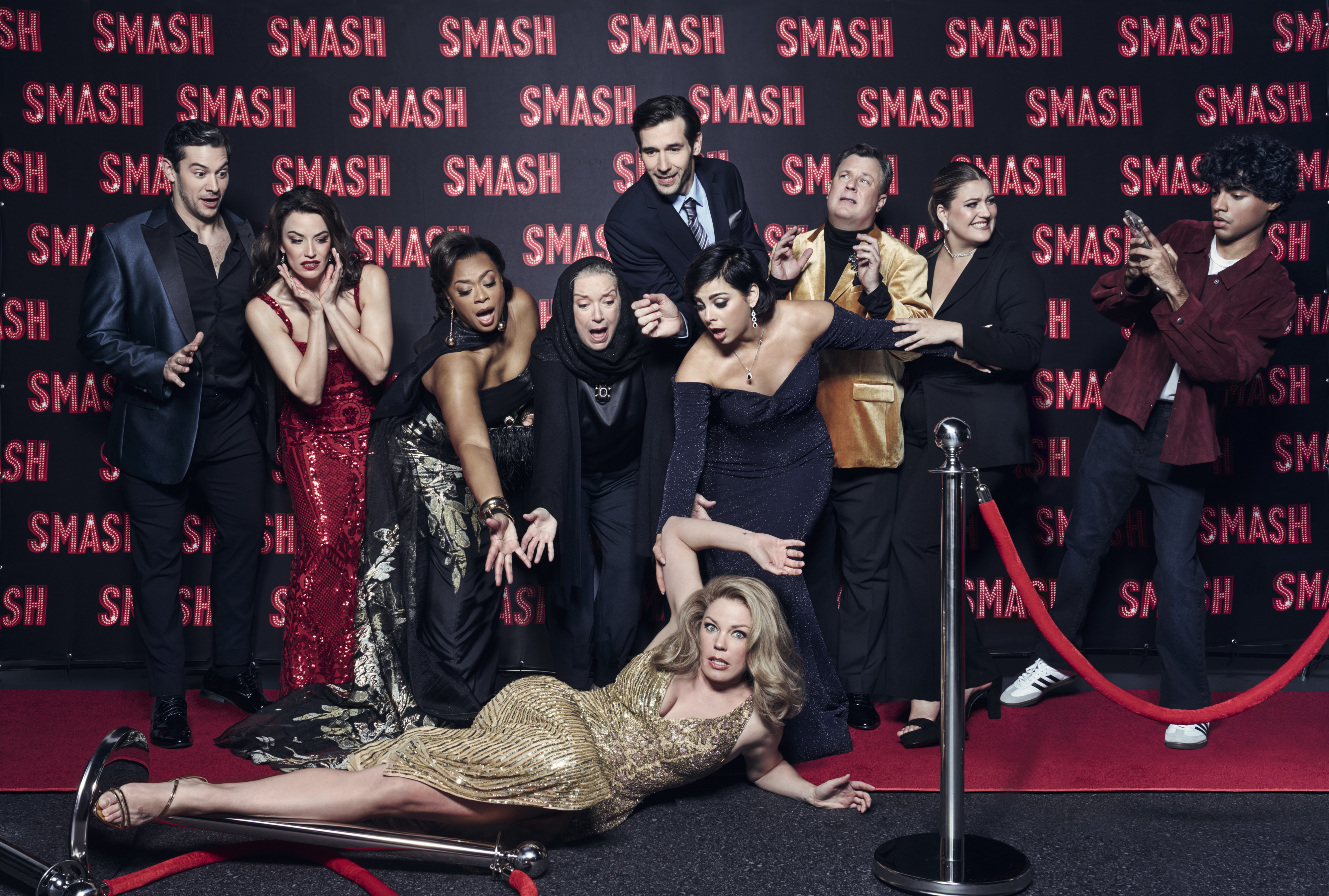
Related Shows
Star Files
Articles Trending Now
- 2025 Drama League Nominations Announced; Idina Menzel, Helen J Shen, Nicole Scherzinger, Lea Salonga and More Up for Awards
- Tony Winners Wendell Pierce and Sarah Paulson Will Announce 2025 Tony Nominations
- Redwood, Starring Idina Menzel, Will Release an Original Broadway Cast Recording in May; Debut Track Out Today

